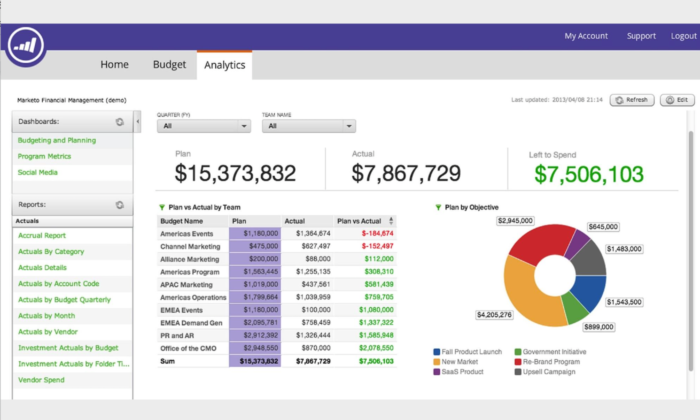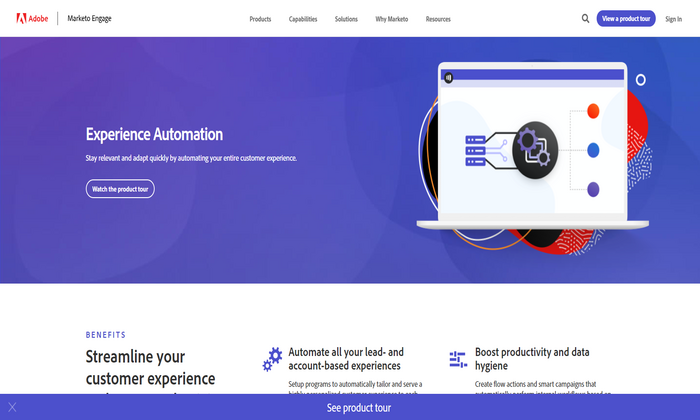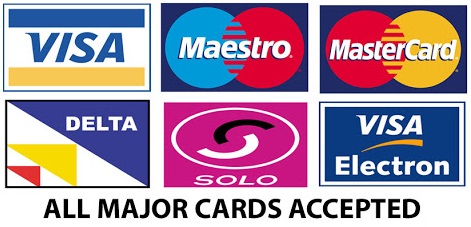
Why aren’t more companies using marketing automation?
A recent survey from Liana Technologies found that 60 percent of respondents said they didn’t know how to use marketing automation. They listed a lack of know-how as the main reason they weren’t adopting marketing automation campaigns.
Half of those surveyed also listed a lack of strategy or personnel as yet another reason they weren’t moving forward with marketing automation.
As you can see from the research, these companies need marketing automation consulting.
10 Ways a Marketing Automation Consultant Can Help Grow Your Business
Marketing automation is often viewed as a nice-to-have option, something that could be helpful but really isn’t all that necessary for companies looking to grow. Marketing automation isn’t an extra; it’s a component that’s an essential part of your marketing.
This isn’t always as clear until you breakdown the benefits that come with marketing automation.

Here are ten ways a marketing automation consultant can help you grow your business.
- More targeted marketing: Many companies force their customers into the same marketing funnel. They’re not focused on optimizing their funnel based on the buyer’s journey, so most of their prospects fall out of their marketing funnel. A marketing automation consultant helps you segment and target your customers properly. A good consultant will help you identify customers who are ready to buy, leads that need to be nurtured, and leads you can disqualify.
- Improve customer experiences: According to Salesforce, 76 percent of consumers expect you to understand their needs and expectations. Another 84 percent said, “being treated like a person, not a number” is essential to earning their business. Marketing automation helps you achieve this at scale, so you’re able to provide the one-on-one attention and personalization customers expect.
- Increased traffic: Big companies have embraced analytics, but most don’t know how to use their data. Most don’t have a data-driven culture, so it’s difficult for many organizations to have confidence in their marketing decisions. This isn’t just big companies, though; it’s most companies in general. This means it’s harder for companies to identify the traffic sources working well versus those that aren’t. With marketing automation tools like lead scoring and lead nurturing, you can identify your best performing traffic sources.
- Higher quality leads: When customers go through the same funnels, without segmentation, lead quality suffers. Your marketing automation consultant should help you outline the buyer’s journey and segment customers based on their place in the funnel. Doing this increases lead quality as customers are pre-qualified before and after they convert. This keeps the quality of the leads sent to sales high.
- More leads: Once you’ve identified the list of marketing automation tools and workflows you need to generate high-quality leads, you can use those same automation tools to scale your lead generation campaigns. Your marketing automation consultant will help you increase lead production, using the lessons learned from your smaller campaigns. You’ll know which traffic sources perform best, how to improve lead quality,
- Increased conversion rates: One of the hidden benefits of marketing automation is that the benefits are cumulative. Your marketing automation consultant will show you how to combine the strategy, tactics, workflows, and tools you’ve put together into a single system. Each component, when optimized, should produce increased conversion rates consistently in your campaigns over time.
- Increased ROI: As your conversion rates increase, your ROI will continue to grow. A great marketing automation consultant will show you how to maintain your ROI as you continue to scale. You should see more revenue with less spend consistently over time.
- Reduced expenses: As metrics like your return on ad spend (ROAS) and your conversion rate improves, you should see a decrease in costs (e.g., cost per lead, cost per action, customer acquisition costs). Your marketing automation consultant should monitor your returns and expenses, ensuring that both are moving in the right direction.
- Data sharing between marketing channels: Your marketing automation stack should provide your team with the right data analysis tools. If you use analysis tools like Cyfe or Power BI, you’ll want to make sure that your team has access to data across marketing channels; your consultant should help you set this up, so your team has need-to-know access to data. Doing this will reduce operational silos, keeping everyone in your team on the same page; no more fights between sales and marketing for control.
- Shorter sales cycles: Let’s say you’ve received two sets of leads. Set A has customers who are ready to buy now. They’ve done their homework, and they’ve decided your company is the best fit. Set B has interested customers; they won’t be ready to decide for another three to six months. Set A has a shorter sales cycle — your consultant helps you find and segment these customers as they come into your funnel.
These benefits aren’t random one-offs; they’re outcomes your business needs to grow. The problem with growth is scaling. As you grow, it gets harder to manage all of this manually.
How to Get Started With a Marketing Automation Consultant
Your marketing automation consultant should be a specialist with deep expertise in automation. They should also have experience across a broad range of marketing disciplines and channels, including:
- Advertising (display, content,
- Analytics
- Branding
- Content
- Direct response
- Market research
- Mobile
- Sales
- Search (organic and paid)
- Websites (e.g., conversion rate optimization, usability, etc.)
If you’re ready to get started with a marketing automation consultant, there are a few things you’ll need to prepare ahead of time. Upfront preparation makes it easier to get started; your consultant doesn’t have to waste a lot of time (and your money) getting you up to speed.
Both of you will be able to jump in right away.

You’ll want to make sure that you have a list of:
- Goals, KPIs, and objectives: For example, this could include a list of tools you’d like to integrate in your technology stack, as well as how you’d like these tools to perform. This could also provide your consultant with information on the specific outcomes you’d like to see due to automation (e.g., a 7 percent increase in productivity, shorter sales cycles, less double entry, improved utilization rates, etc.).
- The tools and resources you’re using: You’ll want to make a list of the tools and resources you’re already using. Collect additional information on the number of users for each software, tool, or subscription. Make note of any API keys and special instructions. Also include a list of the software, tools, and resources you’d like to use.
- Decision-makers and influencers: If you’re part of a team, you may find that some people aren’t all that excited to share their data. Others are interested in working with your consultant to automate essential marketing tasks. Sharing a list of decision-makers and influencers with your consultant makes their job easier. Right from the beginning, they know where everyone stands and who to talk to if they need help getting everyone on the same page.
- Obstacles and challenges: You’ll want to outline the list of barriers and challenges that may prevent you from achieving the goals and objectives you’ve listed above. Maybe some of the services you use don’t offer an API or integrate with third-party services like Zapier. Maybe some of the tools in your list are outdated, or they’re unsupported legacy options (i.e., legacy software running on Windows XP).
- Policies and procedures: If your company has specific policies, procedures, or guidelines for software purchases, you’ll want to share that with your consultant as well. You want to let your consultant know what’s allowed, required, forbidden, and unacceptable. You want to set your consultant up for success by giving them a clear set of guidelines to follow; this helps your company grow.
- Strengths and weaknesses: This step is uncomfortable but it’s also important; if your team, division, or company has problems in a specific area, spell that out for your consultant as clearly as possible. Does it take your company a long time to make important decisions? Is your organization good at finding great employees and contractors? Give your consultant a brief overview of your strengths and weaknesses. Getting people on board is easier when you know what you’re working with.
Sharing this information upfront makes automation smooth and efficient.
If you’ve already answered these questions for your consultant, they’re able to focus their attention on helping you automate your marketing campaigns, projects, and tasks.
Measuring the ROI of Marketing Automation Consulting Services

In general, consultants aren’t big on measuring ROI, but they should be. It’s reasonable to expect the same from your marketing automation consultant. If you’ve done the upfront work I’ve mentioned already, you should have everything you need to measure the ROI ahead of time.
Remember the list of goals, KPIs, and objectives you wrote down earlier?
Your consultant should be able to help you refine your goals and objectives. If you haven’t already, you want to add some specificity to these goals. You’ll want to add specific numbers, facts. or figures to these goals. Use these figures as a general guide — you want to discuss these with your consultant making sure they’re realistic and achievable.
Here are a few examples you can use:
- Increase productivity becomes — Increase our marketing team’s productivity by 16 percent
- Improve lead quality becomes — Use lead scoring to achieve a 6 percent lift in marketing qualified lead volume
- Identify top-performing marketing channels becomes — Identify top performing marketing channels by automating URL tagging for all current and future marketing campaigns
- decrease customer acquisition costs becomes — Reduce customer acquisition costs on Google ads by a minimum of 11 percent
Measuring your ROI is pretty straightforward if you have a clear idea of your campaign goals and objectives. The easier it is for you to list a starting point, the easier it will be for your consultant to help you reach your goals and objectives.
4 Point Checklist For Finding the Right Marketing Automation Consultant

Choosing the right marketing automation consultant is simple if you’ve prepared ahead of time. From there, you can screen consultants the same way you would for any other consultant or professional. First, you outline your process, listing your goals and objectives, your current technology stack, decision-makers, influencers, etc. Second, you filter your providers through your process, ensuring each candidate meets the criteria you’ve set.
Here’s a shortlist of the criteria you can use to evaluate your consultants.
- They understand digital marketing. The best marketing automation consultants are marketers themselves. The ideal candidate is a marketing veteran who’s managed marketing campaigns from beginning to end throughout their career. You’re looking for someone who got their start as a marketer.
- They understand your business. Your marketing automation consultant should have an in-depth knowledge of your business — how it works, what you need, mistakes to avoid, etc. If you’re managing a retail or ecommerce company, your consultant should have experience managing marketing campaigns for retail or e-commerce companies. You’re looking for someone who has a native understanding of your business.
- They’re data-driven. Marketing automation requires a mix of art and science. You’ll need someone who loves to read through data but is skilled enough to explain it to the people on your team who aren’t data-driven. The ideal consultant can tell stories with data and helping your team make important decisions.
- They’re proactive and knowledgeable. When it comes to automation, you shouldn’t be as knowledgeable as your consultant. They should be able to make recommendations and connections you weren’t even thinking of. They should be able to help you automate your campaigns in new ways; to increase your productivity by customizing your marketing stack.
This checklist is pretty simple.
A great marketing automation consultant should be able to handle everything we’ve covered so far comfortably. They should be able to break things down for you, showing you how to improve your plan, refine your goals and objectives, and add to your technology stack.
They should be asking questions.
If they’re good at what they do, they’ll have some questions and requirements of their own.
Conclusion
While many organizations are switching to marketing automation, most don’t have a clear plan they can follow. Companies list a lack of know-how, strategy, or personnel as the reasons why they weren’t completely on board with marketing automation.
That’s changing fast, though.
More companies are investing in marketing automation. They’re taking the time to implement a strategy for their business. Marketing automation isn’t an extra; it’s a component that’s an essential part of your marketing, especially as your company grows.
With the right consultant and a clear strategy, you’ll have the people, process, and technology you need to grow your business quickly.
The post Marketing Automation Consulting appeared first on Neil Patel.
source https://neilpatel.com/blog/marketing-automation-consulting/




